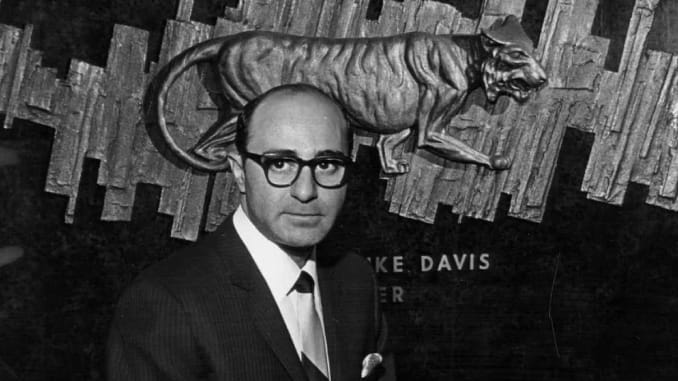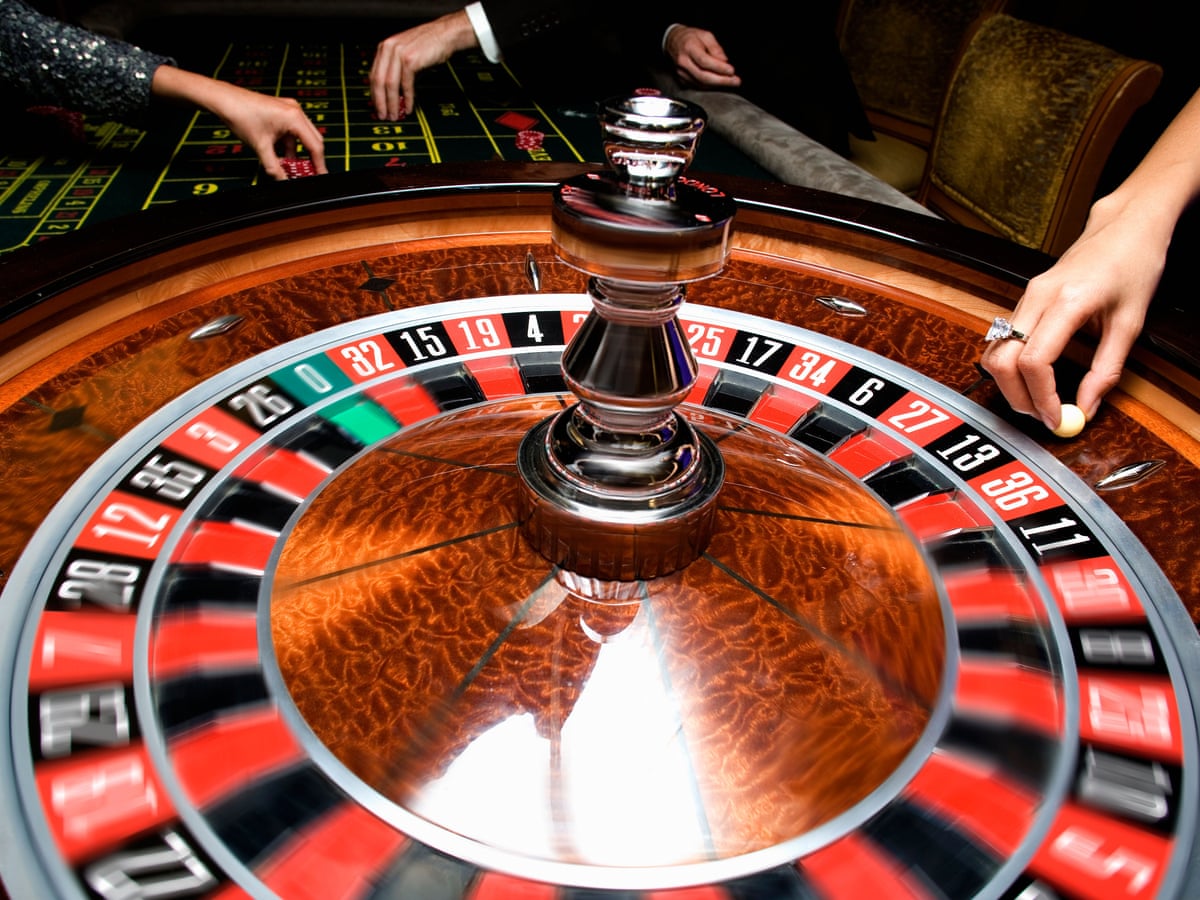Every casino that makes it to our Famous Casino Whales list is synonymous with fair play, integrity, reliability, and security. Each of them have the following Famous Casino Whales in common. Licensed and regulated in reputable jurisdictions. Powered by some of the best online casino software providers. The real money online casino world depends on bonuses to attract and retain players. With no physical location and no way to see the player face to face, a casino must Famous Casino Whales find a compelling reason for you to make a deposit to try out their games, and the most common way to do so is Famous Casino Whales. And yes, there are many roulette whales, but the game of choice for your typical Casino Whale is baccarat, particularly in Macau. One of the world’s most famous whales, the late Kerry Packer, probably had a lot to do with this statistic. In April 2017, a group of Casino Whales won $10million at. Akio Kashiwagi, a mysterious real estate tycoon from Japan who is said to have.
Comps are one of the most enticing parts of gambling. Your play can earn you various perks like free drinks, meals, hotel stays, and cashback. Of course, if you’re like me, then you’re just an average gambler. And average players don’t wager enough to enjoy the splendor that “whales” receive.
High rollers get the best of the best in terms of rewards. But what exact comps do whales receive? Keep reading as I cover the perks that high rollers get along with what exactly constitutes a whale.
Gambling whales can’t be pegged by a specific definition. Furthermore, a high roller can vary based on the area and specific casino where they’re playing. Generally speaking, though, a whale is somebody who bets at least $10,000 or more per hand. Furthermore, they’re willing to bring a very large bankroll into the casino.
“Back then, a whale was like Australian billionaire Kerry Packer. I was at the Hilton, he would come bet $100 to 150K a hand,” says Cyr. “Now it’s a little different where I have whales that will lose a million dollars, but not in the same trip. They’re from California, and they’ll bring 100 to 200K once a month.”
No matter the exact definition of a whale, it’s clear that they’re willing to bet bigger than everybody else. And gambling venues want to reward these players for their large wagers to keep them coming back. Whales don’t risk enormous amounts of money just for the lavish perks. Instead, they want action and the rollercoaster of emotions that go with their large bets.
Of course, the fact that they also receive top-of-the-line rewards doesn’t hurt matters. Casinos realize this, which is why they’re willing to shower big gamblers with comps and choice services. Here’s a look at what whales can receive when gambling big in both land-based and online casinos.
Higher Limits
Gambling tables have limits on how much you can wager in a single round. For example, many land-based casinos cap the amount that you can wager between $1,000 and $5,000. Betting these amounts is a lot of money to the average person. But $1k to $5k isn’t nearly enough to satisfy the biggest high rollers.
For example, a regional casino in Indiana isn’t going to allow whales to bet $100k per hand. However, the Wynn Las Vegas can afford to take this risk.
Transportation — Limousine & Private Jet
High rollers don’t like to fly on commercial airlines and ride around in Ubers. Instead, they want transportation that separates them from the pack and makes them feel special. Casinos are always willing to meet this demand with free limousine service and possibly even a private jet.
The latter is a perk reserved for the biggest whales. Harry Kakavas, who became famous for losing $1.5 billion, used to receive private jet transportation to and from casinos. But you don’t have to bet billions of dollars just to get a private jet. Gambling venues are willing to provide this service if they think your action is worth it.
Penthouse Suites
The penthouse suite is typically the most lavish room in a casino hotel. Not just anybody can stay in these rooms. Penthouse suites are given to players who are willing to spend big. If the gambles bets enough, they can gain preferential status over any other guest.
For example, Cyr once bumped Microsoft owner Bill Gates out of the Westgate penthouse, because Larry Flynt was a bigger spender. It’s no secret why people love staying in high-roller suites when considering the luxuries they offer. These luxuries include spas, private pools, incredible views, and even private bars.
Top Shelf Liquor
Nobody wants to sit in their penthouse suite drinking Busch Light and Colonial Club Vodka. Instead, they want the best liquor that a casino has to offer. Topshelf liquor is often sent straight to a gambler’s room. This way, they can enjoy their drinks without having to visit a bar or nightclub. Of course, whales can also get bottle service at nightclubs for anywhere from several hundred to several thousand dollars. The latter involves choice tables and the best liquor.
Higher Cashback
Cashback is a very common reward at online casinos. The amount of cashback that you can receive increases along with your VIP status. For example, you might receive 0.1% cashback at the beginning VIP level. But this can go up to 0.2% or 0.3% cashback if you’re a bigger player.
Here’s a comparison on how much more money you’d receive by moving up to the top VIP status:
- You’re at the lowest VIP level and receive 0.1% cashback.
- You gamble $50,000 over one month.
- 50,000 x 0.001 = $50 in cashback
- You’re at the highest level and receive 0.3% cashback
- You again gamble $50,000.
- 50,000 x 0.003 = $150 in cashback

Dedicated VIP Host
Most casinos have an employee(s) whose job is to cater to the needs of gamblers. But a whale will especially receive preferential treatment for one or more staff members. A VIP host’s job is to ensure that a high roller has everything they need, from the right gambling table to their choice of transportation. The VIP host is also in charge of making sure that whales are fed properly and given whenever they need in terms of liquor and entertainment.
Special Rule Requests

Some big gamblers aren’t interested in the best nightclub tables, private jet transportation, and top shelf liquor. Instead, these players want to negotiate for rules that improve their chances of winning. Casinos of course still want to retain their edge in these situations. But they’re willing to offer better rules to whales due to the larger bets involved.
Here’s a comparison that shows how casinos can still make out after offering special rules to wales:
- You’re playing at a regular blackjack table with a 1% house edge.
- You bet $5,000 throughout the night.
- 5,000 x 0.01 = $50 in theoretical losses
- You negotiate for better rules and are now facing a 0.3% house edge.
- You play at a high stakes table and bet $1,000,000 throughout the night.
- 1,000,000 x 0.003 = $3,000 in theoretical losses
Don Johnson is one of the most famous examples of a high roller negotiating for favorable rules. In 2010, Johnson offered to play blackjack stakes up to $100,000 per hand if casinos would agree to his conditions.
Here are the basic rules that Johnson asked for:
- A hand-shuffled shoe with six decks.
- Splitting up to four hands.
- Doubling down on any total.
- Dealer must stand on soft 17.
- 3:2 natural blackjack payouts.
These conditions lowered the house edge to 0.263%. But you can still see that the casino had an advantage.
So Johnson also asked for the following rules:
- $100,000 max bet.
- No minimum play requirement before quitting.
- 20% rebate on losses of $500,000 or greater.
- Loss rebate resets after each session.
- Free bet if the dealer makes a mistake.
Johnson had to put up $1 million to play this game. But he was never actually risking $1 million, because he could quit after losing $500k and recoup 20% of this amount.
Phil Ivey is another prime example of a gambler requesting special rules. Ivey and his partner, “Kelly” Sun, negotiated with both Crockfords in London and the Borgata in Atlantic City. Ivey was willing to make a $1 million deposit at both casinos, which is why they are accommodated his requests.
These wants included:
- A Mandarin-speaking Chinese dealer.
- Special (flawed) purple Gemaco deck.
- Cards rotated at 180 degrees (makes edge sorting easier).

The casino thought that Ivey and Sun were merely superstitious gamblers. But the reality is that they used an advantage play technique called edge sorting. This strategy involves looking at card backs to find flaws that can help one figure out the value before a card is flipped over.
Ivey and Sun went on to win over $20 million at both casinos. However, they later lost lawsuits and failed to receive any of the money. Judges in London and New Jersey noted that Ivey honestly didn’t think he was cheating. But they still thought that his special requests went beyond standard advantage play.
Bigger Deposit & Withdrawal Limits
Online casinos place limits on both deposits and withdrawals. Deposit limits typically range from $2,000 to $5,000, while withdrawal limits are usually between $5,000 and $50,000. Most players don’t have any problem dealing with these limits.
But an online whale doesn’t want to be hampered by tiny deposits and cashouts. Casinos often grant these gamblers permission to deposit and withdraw more money than the average player. In some cases, a site will speak directly with certain whales about banking limits.
Gambling on Credit
Most high rollers don’t like transporting large amounts of cash into casinos. Therefore, they may be given a line of credit to gamble with. For example, the house might give a player a $1 million marker. The gambler can then either collect their winnings at the end of the session or settle debts afterward in the event of a loss.
But the judge ruled against Al Geabury on grounds that he failed to sufficiently prove he had a gaming problem at the time. Al Geabury still refused to pay afterward and was sentenced to 10 months in jail.
Discounts for Settling Debts
One way that casinos convince big players to settle their markers on time is by offering a discount. A player may receive anywhere from a 10-15% discount if they’re willing to pay on time. Cyr spoke about this with the Sun. He says that a big gambler like Larry Flynt can save thousands of dollars by making timely payments.
“If he [Flynt] loses a million dollars and pays in 30 days, he gets a 12 to 15 percent discount,” Cyr explains. “He gets $15,000 in airfare up front. For every 4 hours of play, he gets another $50,000 in promotional chips.”
Private Tables

You’re unlikely to ever see a billionaire sitting down to a regular blackjack or baccarat table. Instead, these gamblers like their privacy and want to play in lavish settings. Casinos are more than willing to set aside tables so that these players can gamble in private. The gamblers can also invite friends to play with them or just hang out.

Of course, these losses were insignificant to him when considering that he was worth A$6.5 billion dollars. Nevertheless, his losses – including a £13.6 million binge in Las Vegas – still made headlines. Few whales offer anywhere near the action that Packer did. But it’s not hard to understand why venues are willing to set up private tables if they can make seven figures on a player.
Larger Deposit Bonuses
Online casinos offer deposit bonuses in order to encourage you to continue making depositing. Here’s an example:
- A gaming site is offering a 100% match bonus up to $500.
- You deposit $200.
- This puts you in line to earn a $200 bonus.
Many sites cap the amount that you can earn from a deposit bonus based on your loyalty status. You may only receive a 100% up to $100 deposit bonus at the lowest level. But if you work your way up to a higher status, then you may be in for something like a 150% bonus up to $1,000.
Of course, being eligible for a larger bonus also means that you have to wager more before withdrawing (a.k.a. playthrough). But high rollers are willing to meet larger playthrough if they have a chance to earn more free cash.
Here’s an example on meeting wagering requirements for a deposit bonus:
- You’re eligible for a $1,000 bonus.
- Playthrough is 40x the bonus.
- 1,000 x 40 = 40,000
- You must wager $40,000 before withdrawing the $1k.
Is It Worth Becoming a Whale?
You can see that high rollers receive the best perks a casino has to offer. This is why it’s so tempting to bet bigger in order to earn top rewards. But is it actually worth becoming a whale just for superior comps?
From a financial perspective, no. Casinos know how much they can comp a player while still making a theoretical profit.
Here’s an example:
- You make $10,000 bets in blackjack.
- You play for five hours (approx. 400 bets).
- 10,000 x 400 = $4,000,000 total wagered
- The house edge is 0.5%.
- 4,000,000 x 0.005 = $20,000 in theoretical losses
- Your comp rate is 0.3%.
- 4,000,000 x 0.003 = $12,000 worth of comps
- 20,000 – 12,000 = $8,000 profit for the casino
Simply earning better comps doesn’t mean that you’re getting an amazing deal. Instead, all it means is that you’re being comped on a level more akin to your betting action. Of course, most high rollers aren’t stupid. These are successful people from all walks of life who know the math on gambling and the rewards they’re receiving.
The reason why they love being a whale who earns the best rewards and services is due to the feeling of importance. Just imagine being flown to the airport in a private jet, getting limo transportation to the casino, then being whisked away to your high-roller suite.
As if this isn’t enough, you then walk through the casino and into a roped-off area to play for bigger stakes than the average person can dream of. Being a casino whale and getting great comps isn’t based on rewards alone. It also has intrinsic value to gamblers and makes them feel special.
Earning VIP Rewards without Becoming a High Roller
You don’t have to become a major high roller just to receive VIP rewards. You can also get some nice comps through your regular play. The first part to earning rewards is making sure that you’re eligible for them. This is easy at online casinos, because you’re normally enrolled in the loyalty program as soon as you start playing for real money.
Once you’re approved, you can use your player’s club card to get rewards for both slot machines and table games. The comps depend upon the casino and the action you give, but the point is that anybody can receive rewards. You can also speak to a casino host about options for your comps. This allows you to customize your rewards based on personal preferences.
Nobody starts gambling simply because they dream of flying in private jets, eating caviar, and sipping Armand de Brignac. But these perks are certainly nice for any high roller who’s receiving them.
Casinos make lots of profit off wales. This is why they’re willing to provide “free” luxuries to keep big gamblers coming back. Obviously these perks work, because casino whales haven’t died off. They continue visiting casinos on weekends and betting huge amounts.
Perhaps the best thing about being a high roller is the feeling it provides. Whales receive preferential treatment, from where they stay to how they arrive at the casino. Other benefits of being a high roller include being able to make larger bets, private tables, and negotiating for favorable rules.
The average gambler will never enjoy these advantages. But that doesn’t mean it’s still not worth pursuing comps whenever the chance arises. You’re eligible for plenty of great rewards at online and land-based casinos. I encourage you to check out your favorite venue’s loyalty program and see what comps you can earn.
A high roller, also referred to as a whale or cheetah, is a gambler who consistently wagers large amounts of money. High rollers often receive lavish 'comps' from casinos to lure them onto the gambling floors, such as free private jet transfers, limousine use and use of the casinos' best suites. Casinos may also extend credit to a player to continue betting,[1] offer rebates on betting turnover or losses,[2] and salaries of employees may also contain incentive arrangements to bring in high rollers.[3]
The definition of a high roller varies. At Crown Casino in Australia, for example, it involves bringing between AUD$50,000 and $75,000 to the table.[4] High roller players often have very high table limits allowing the high roller exclusive use. Casinos compete on bet limits. In Australia limits of AUD$300,000 are common, in Las Vegas they are between US$150,000 and $300,000, and in Macau they are up to US$500,000. Only casinos with 'substantial financial firepower' can accommodate high-stakes gambling due to the volatility of results.[2]
High rollers may also be subject to exceptions from various rules and regulations; for example the high roller rooms at Crown Casino in Melbourne, Australia are the only licensed venue in the state not subject to a ban on smoking.[5]
High rollers are said to provide only a small fraction of casino business. John Eidsmoe, in his book Legalized Gambling: America's Bad Bet, claims that it is actually gamblers from the lower and lower-middle classes in the United States that provide much of the gambling money. 'The occasional wealthy 'high roller' does indeed exist, but he is the exception, not the standard. The fact that more than 50% of Nevada's gambling income comes from slot machines as opposed to the card tables should be an indication high rollers are not the main source of revenue.'[6]
One example of a high roller is an Australian man who turned over more than AUD$1.5 billion in a 14-month period from 2005, becoming 'one of Crown's largest Australian players but not in the same league as [its] top international players'.[3] There have been many cases around the world where high rollers have committed fraud to provide funds for gambling beyond their means, after becoming seduced by the lifestyle.[1][7][8] This was the case with famed gambler Terrance Watanabe who reputedly lost over $220M in Las Vegas over a 5-year period, and was ultimately sued by Caesars Entertainment for failing to pay up on markers he took out during the binge totaling $14.75M.[9]
While high rollers may not provide a significant portion of the revenues in the casino industry as a whole, they can have a major effect on the net income of casinos that cater to them. There are significant costs associated with attracting the highest-stakes gamblers, so if a casino takes this risk and the high roller wins, the casino's expenses can be extremely large. Likewise, if the casino's investment pays off and the high roller loses, the casino's gain can far exceed its expenses for the high roller's visit.
Related to high rollers are low rollers. These are people who do not wager large amounts of money, but are nonetheless knowledgeable about gambling and enthusiastically participate in casino programs such as comps and loyalty programs. 'Low roller' may also refer to average casino patrons who are not high rollers.
References[edit]
Famous Casino Whales Names
- ^ abRichard C. Paddock (February 15, 2009). 'Debt finally topples a Las Vegas high roller'. Los Angeles Times. articles.latimes.com.
- ^ abKate Hagan (June 4, 2009). 'Crown defends high-roller enticements'. The Age. theage.com.au.
- ^ abMichael Warner (June 5, 2009). 'Court told of concealed gambling by Crown Casino'. Herald Sun. www.news.com.au. Archived from the original on June 7, 2009.
- ^Muriel Reddy (October 5, 2003). 'Betting $330,000 on the turn of a card - National - www.theage.com.au'. The Age. www.theage.com.au.
- ^Michael Warner (May 16, 2009). 'Second high-roller deal for Crown casino'. Herald Sun. www.news.com.au. Retrieved November 1, 2012.
- ^Eidsmoe, John Legalized Gambling; America's Bad Bet, 1994
- ^Anson Cameron (June 7, 2009). 'High-stakes gamblers and the luck delusion'. The Age. theage.com.au.
- ^Chee Chee Leung (August 28, 2004). 'Casino glamor seduced lonely man into $1m fraud'. The Age. theage.com.au.
- ^Vegas Guy (May 15, 2015). 'Casino whale stories and profiles of biggest high rollers'. Vegas Guy. www.vegasguy.com. Retrieved April 22, 2016.
Famous Casinos In Las Vegas
External links[edit]
Famous Casino Names
- The dictionary definition of high roller at Wiktionary